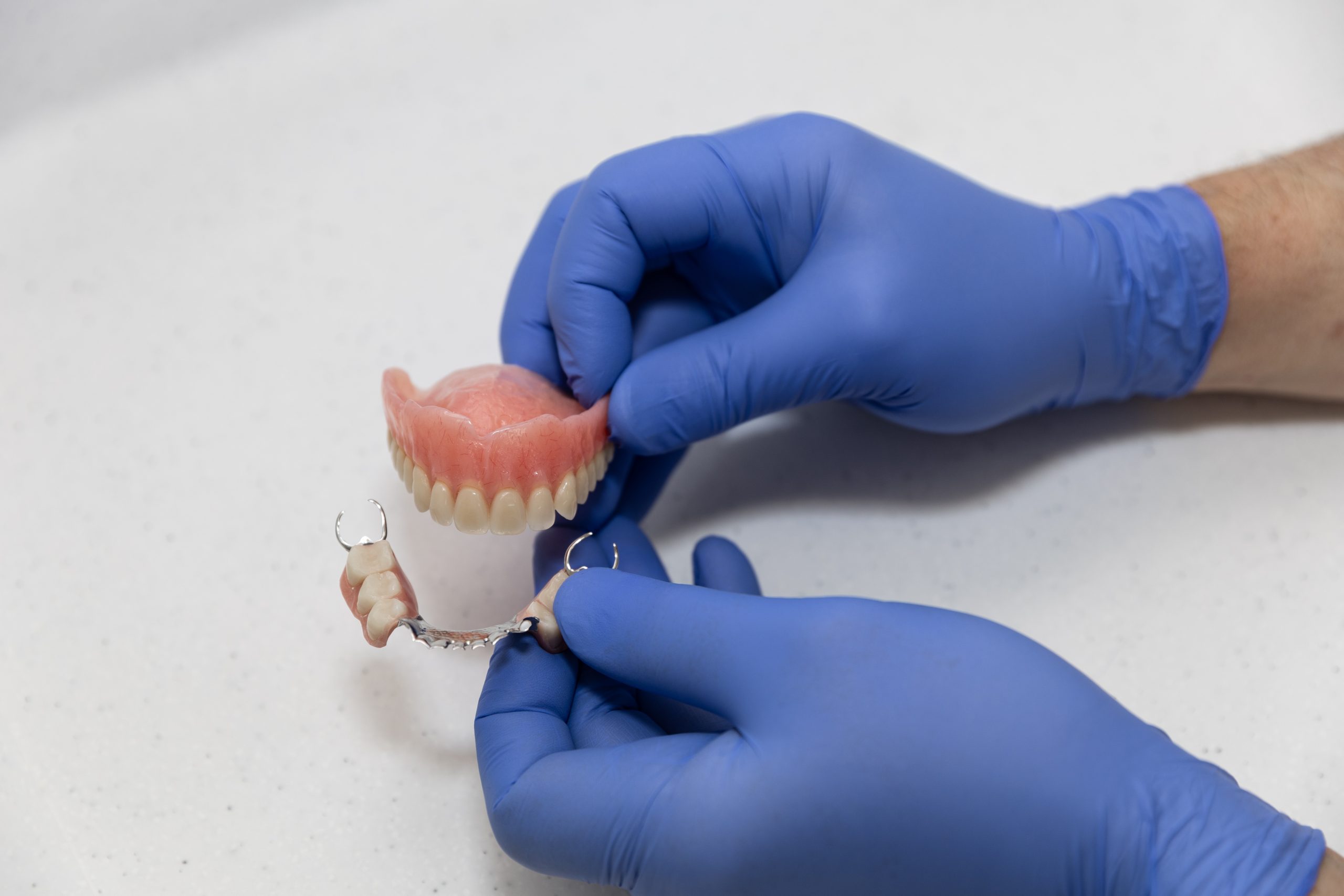How is a denture made?
The manufacture of a denture can be a lengthy process, with several appointments required in order to make sure your denture has a secure and comfortable fit. The process normally takes around 4-6 weeks from start to finish, and you will get a more exact timeframe after your initial consultation.
During a comprehensive consultation, we check your existing teeth and gums and create your detailed treatment plan. We also give you the chance to ask us any questions.
We take digital impressions, x-rays and photographs of your mouth, which are used to create a wax model of your dentures to check the fit, bite and comfort. We adjust the model until you are completely happy, and it is then used to produce your final denture.
When your dentures are ready, we invite you for a fitting appointment. If you are having complete dentures, these will be fitted in the top or bottom of your mouth. This complete denture will consist of a gum coloured arch with a set of prosthetic teeth attached. Partial dentures will be used if you only have one or a few missing teeth and may be held in place with metal hooks attached to existing teeth.
It can take a little while to get used to your new dentures, so we give you some tailored tips and advice to help. We also arrange a follow-up appointment for around one week later to check your dentures are comfortable and secure.






